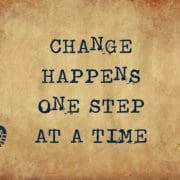Daily habits to help manage anxiety in a healthy way
In the serene environment of Byron Shire, where the ebb and flow of the ocean waves echo the natural rhythms of life, individuals often seek tranquillity not just in their surroundings but within themselves. Anxiety, a common experience that can disrupt this harmony, often demands a multifaceted approach to management. Anne Evans Counselling, nestled in this coastal haven, advocates for establishing daily habits that can contribute significantly to managing anxiety in a healthy, sustainable manner.
The Nature of Anxiety
Anxiety can be likened to the ocean’s undercurrents, often unseen yet powerfully felt. It can manifest through various symptoms such as restlessness, rapid heartbeat, and an overwhelming sense of worry. While anxiety is a natural response to stress, its persistent presence can hinder one’s quality of life, making the pursuit of effective management strategies essential.
Daily Habits for Anxiety Management
Morning Mindfulness
Begin each day with mindfulness meditation. Even just a few minutes can ground your thoughts and center your emotions. By focusing on your breath or engaging in a guided meditation, you can set a calm, present-focused tone for the day.
Nourishing Nutrition
A balanced diet can have a profound impact on your mental health. Incorporate foods rich in omega-3 fatty acids, magnesium, and vitamins B and D to support brain health. Hydration is also key; remember, a hydrated brain is a happy brain.
Movement Medicine
Regular exercise releases endorphins, which have natural stress-relief properties. Whether it’s a morning surf, a walk through the rainforest, or a yoga session, find an activity that you enjoy and make it a part of your daily routine.
Journaling Journeys
Writing down your thoughts and feelings can be incredibly therapeutic. It helps to declutter your mind and provides an opportunity for self-reflection. A journal can be a safe space to express anxiety without judgment or restriction.
Scheduled Self-Care
Self-care is not indulgent; it’s necessary. Schedule time for activities that replenish your energy and bring you joy. It might be reading a book, taking a bath, or simply sitting quietly in the sun.
Quality Sleep
Prioritise sleep hygiene by establishing a calming pre-sleep routine and creating a restful environment. Good sleep is foundational for emotional regulation and can greatly influence your ability to manage anxiety.
Connectivity with Community
Fostering relationships and feeling connected can alleviate feelings of isolation that often accompany anxiety. Whether it’s a community yoga class or a weekly catch-up with friends, building and maintaining social connections is vital.
Digital Detox
Take regular breaks from digital devices to reduce information overload, which can exacerbate anxiety. Instead, spend time in nature, allowing the serene environment of Byron Shire to soothe your mind.
Breathwork Basics
Learn and practice breathwork techniques. Controlled breathing not only helps to manage acute anxiety but also trains your body to access a state of calm more readily.
Professional Partnership
Establishing a relationship with a counsellor or therapist can provide you with tailored strategies to manage anxiety. Regular check-ins can help you maintain healthy habits and address any underlying issues contributing to anxiety.
Integrating Habits with Anne Evans Counselling
Incorporating these habits into your daily life may require initial guidance and support, which is where Anne Evans Counselling can be instrumental. Through individual counselling, clients can explore personal triggers and learn coping mechanisms that align with their lifestyle and personal preferences. The therapeutic journey is not just about managing symptoms but also about building resilience and discovering personal strength and clarity.
Embracing Daily Harmony
By embedding these habits into your daily life, you take proactive steps towards managing anxiety. It’s not about eliminating anxiety entirely but rather understanding and mitigating its impact on your life. With the support of Anne Evans Counselling and the natural tranquillity of Byron Shire, you can learn to navigate the currents of anxiety, steering towards a life characterised by balance and peace.












